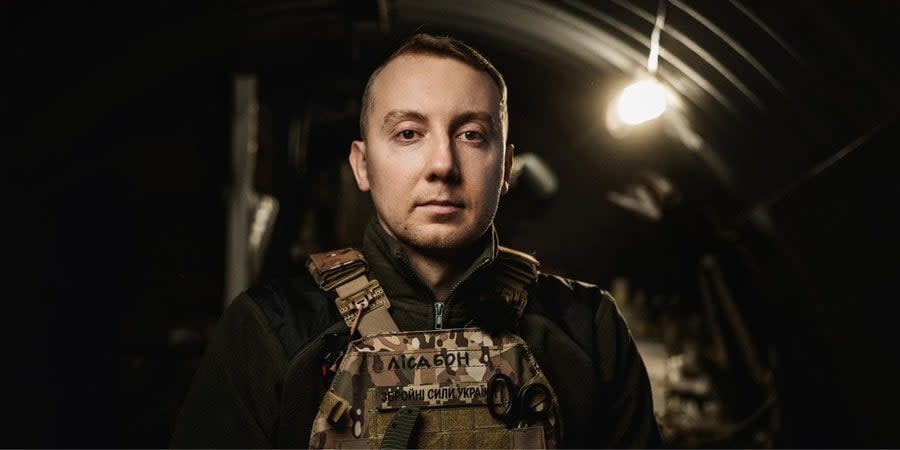Ukrainian officer on country’s past, present, and future — interview

StanislavAseyev, a Ukrainian writer, former Russian prisoner, and now a military officer, spoke to NV about the ultimate end of the Moscow regime, Ukraine’s most important events over the past 10 years, and the war as a catalyst for its transformation.
Aseyev spent two and a half years in Russian captivity in occupied Donbas and joined the Armed Forces of Ukraine in early 2024. He’s currently serving near Avdiivka, Donetsk Oblast, as part of the 109th Territorial Defense Brigade. The interview with him is one of a series of our conversations with Ukrainians who have played a significant role in the events that have taken place in the country over the past 10 years.
As part of this project reflecting on the 10th anniversary of our media project, NV editors asked the interlocutors five identical, broad-picture questions.
NV: What Ukraine’s achievements over the past 10 years do you consider the most important?
Aseyev: I believe the Revolution of Dignity [2013-1014] and repelling the Russian attack on Kyiv [2022] were one of the country’s greatest achievements and most important events of our lives. Because the Revolution of Dignity marked a turn from authoritarianism and totalitarianism to real democracy. Repelling the attack on Kyiv is generally a matter of our state’s existence. If we hadn’t defended Kyiv, I think nothing would have happened further.
NV: What event in your own life over the past 10 years do you consider to be most important?
Aseyev: Certainly, I don’t need to think long here: my release from captivity. For me personally, it was an existential event. And, as lame as it sounds, but I was born anew, given the conditions I was in and that there was no guarantee that I would ever be released. Let me remind you the guys with whom I was imprisoned are still there, and they have no prospect of getting out, and it’s been seven years. So, I can say that I was incredibly lucky to get out of that hell, where many of our civilians and prisoners of war remain, after two and a half years of war.
Read also: What helped me believe in victory again — opinion
NV: What changes do you expect in the country over the next 10 years?
Aseyev: I hope the transfer of power from, again, authoritarianism towards real democracy, comparable to [the one presided by former President of Czechoslovakia and later the Czech Republic] Václav Havel will take place within the next 10 years. The Maidan [Revolution of Dignity] was certainly a key event in this sense as a change in the country’s vector in which it should develop, but the people who have been in power for these 10 years, unfortunately, in my opinion, don’t embody the values and ideals that we would like to see in the country after 2014. A Ukrainian politician of Havel’s caliber is still nowhere to be found.
I hope something will happen in these 10 years that would bring such a person to power. The post of president comes first, but also in general a qualitative, radical change of governance and a shift away from bureaucracy and corruption, which, unfortunately, we have today. War can be a catalyst for such changes, a crucible from which such a leader could emerge.
Read also: Occupied Crimea faces new challenge as Russia plans large-scale draft
NV: What would you see as a victory in this war?
Aseyev: If one is not to indulge in philosophizing, I would say it would be the liberation of Crimea. The war won’t end there, but it certainly could be considered a victory. Both for me personally, and, I think, for our country. This will mark the end of [Russian dictator] Vladimir Putin, his political regime, perhaps even his physical existence. I think this will be a turning point that will ultimately lead to victory in every sense of the word, including fully restoring our territorial integrity.
Of course, there are still many issues to consider. That is, even the return of Donbas can hardly be considered the end of the war, because it will be necessary to work with people who have been under the influence of enemy propaganda for at least 10 years, and who knows how long that would take.
That would necessarily include bringing justice for the victims of Russian war crimes and prosecuting those who facilitated these barbaric policies. But that is something for the future, beyond even the next decade, maybe not even in my lifetime.
We’re bringing the voice of Ukraine to the world. Support us with a one-time donation, or become a Patron!
Read the original article on The New Voice of Ukraine

